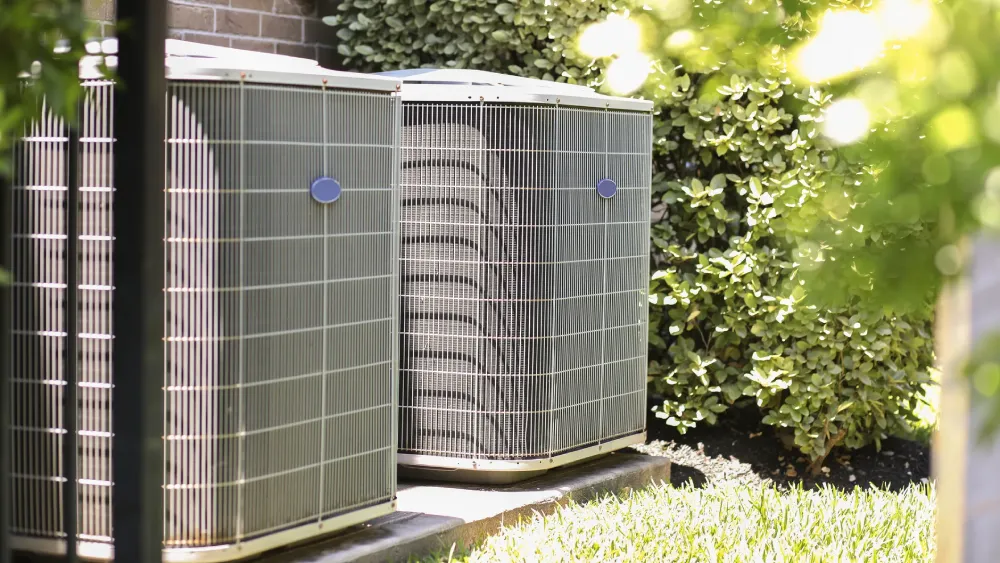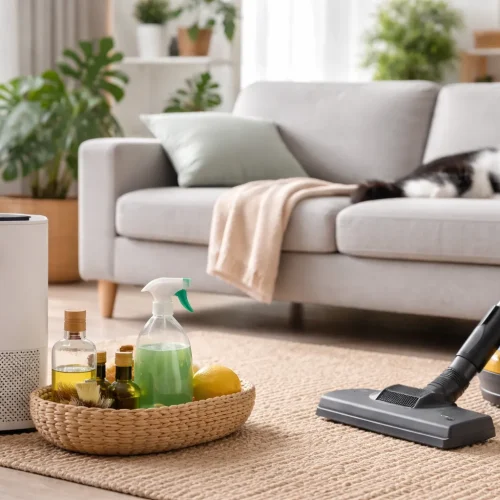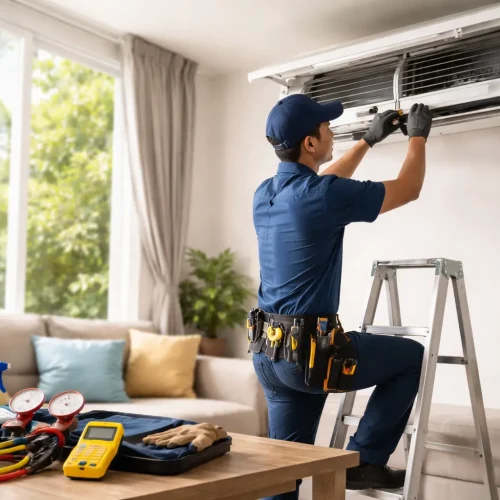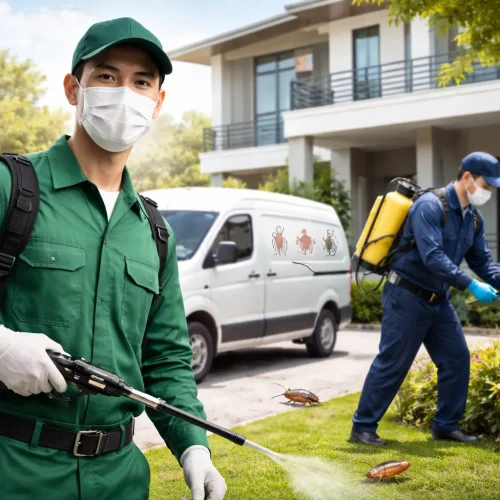
An outdoor air conditioning (AC) unit improves overall comfort and air quality by continuously eliminating heat and humidity. They provide streamlined cooling for larger spaces while improving energy efficiency. Understanding proper care and maintenance helps you schedule air conditioning services to repair and address issues early on. Here are a few signs that your outdoor AC unit needs maintenance:
1. Unusual Noises
Sounds from your outdoor AC unit are early warning signs that air conditioning service is overdue. These noises might include rattling, banging, grinding, or squealing. Over time, bolts, screws, or mounting brackets loosen, or parts such as fan blades could become misaligned. A small imbalance in the fan creates vibrations and noise, which, if left unattended, worsens with use.
Motors have bearings, belts, or internal components that degrade. A whine or squeal often indicates worn bearings or poor lubrication. Repairing or replacing bearings early helps prevent the unit’s failure. Twigs, branches, leaves, or even animal nests near or inside the outdoor unit can hit fan blades, causing rattling or fluttering sounds. Debris restricts airflow and overheats components, leading to buzzing or humming noises as the compressor struggles.
A hissing sound may indicate a refrigerant leak or undue pressure. Refrigerant leaks reduce cooling performance and can damage the compressor if not addressed. Buzzing or crackling may also come from electrical connections or contactors. Loose wiring, corroded terminals, or worn electrical insulation can lead to arcing or sparking noises, which are serious safety hazards. An HVAC professional will evaluate each component to determine the cause of the issue and provide the necessary repairs or replacement parts.
2. Weak or Inconsistent Airflow
An outdoor AC unit requires a steady flow of air to release heat effectively. When you have low or disrupted airflow, your AC has to work harder, putting more strain on components. Once the filter is covered with dust, you will have reduced air flow within the system, preventing the coils on your outdoor unit from releasing enough heat. Outdoor condenser coils and fins get a buildup of dust, pollen, grime, and other debris over time. The effect is less cooling and uneven temperatures in various rooms. These factors lead to decreased airflow or turbulence. Fans with bent fins or fan blades, worn motor mounts, or bent fan guards also reduce system efficiency. A technician will carefully remove buildup and adjust components that are bent out of shape.
3. Short Cycling
Short cycling happens when your outdoor air conditioner turns on and off frequently instead of running in longer, more efficient cycles. It may signal that the system is overworked or unbalanced. If the thermostat is overly sensitive, miscalibrated, or placed in a location that misreads temperature, such as near heat sources or in direct sunlight, it can cause the system to think the home has reached the desired temperature too soon, resulting in premature shutdown.
When an AC unit is too large for a home, it can cool too quickly, causing the condenser motor to shut down early. The outdoor unit may struggle to absorb heat if the refrigerant is low or while blowing cool air. Variations in internal pressure can trigger safety shut-offs or cause erratic cycling. Faulty capacitors may lead to intermittent power and irregular start-up or shut-down, resulting in premature cycling. Regular HVAC maintenance can optimize system performance, prevent these issues, and keep your home comfortable.
Obtain Reliable Air Conditioning Service Today
Scheduling regular maintenance helps the unit work optimally throughout the year. Checking for visible signs of damage or corrosion may help homeowners understand when to seek repair services. Working with a technician provides you with regular diagnostics to identify underlying issues early on. Contact a professional service provider today to schedule maintenance for your AC unit.
Common Questions
Unusual noises, weak airflow, and short cycling are the top indicators that your unit requires attention.
These noises often mean loose parts, misaligned fan blades, or debris is hitting components.
A hissing sound usually signals a refrigerant leak or pressure problem, which needs professional repair.
Clogged filters, dirty coils, or bent fan blades commonly reduce airflow and cooling efficiency.
Leaves, twigs, and dirt block airflow, overheat components, and create noises as they hit fan blades.
Short cycling happens when your unit frequently turns on and off, signaling issues like faulty thermostats, refrigerant problems, or incorrect sizing.
Yes, buzzing or crackling often points to loose wiring, corroded terminals, or faulty contactors.
It’s best to schedule professional HVAC maintenance at least once a year, ideally before peak summer use.
Ignoring symptoms can lead to higher energy bills, system failure, or costly repairs down the road.
If you notice strange noises, weak airflow, or short cycling, contact a licensed HVAC technician right away.













